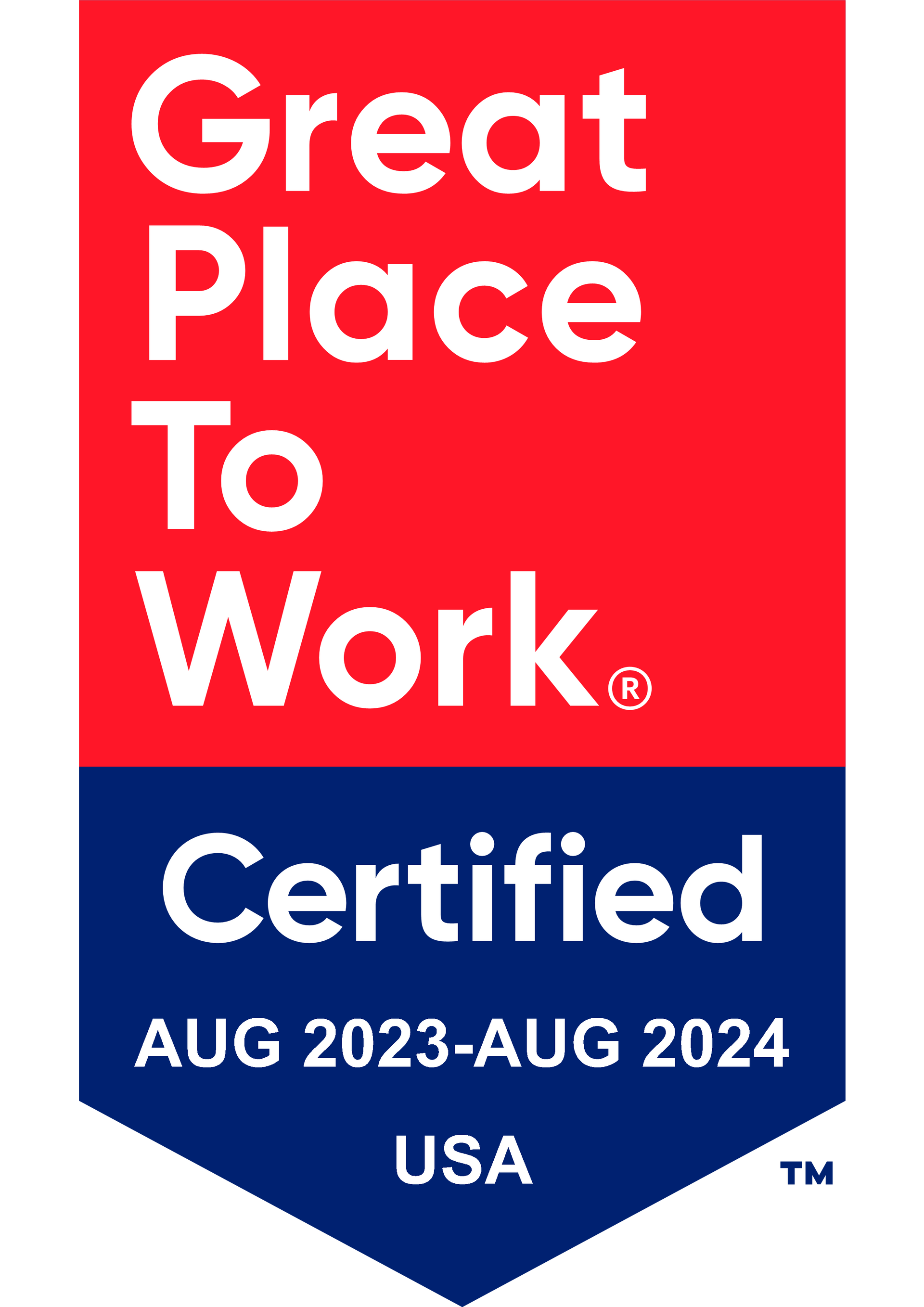Get in touch
408-366-8880
mymail@mailservice.com

Providing Easy Access to Employee Mental Health Services
Due to the growing awareness of the impact of mental health on well-being and productivity in the workplace, employers are thinking more about the behavioral health services they offer to their employees. With the shift in focus to mental health solutions for employees, we’ve seen an expansion of mental health services offered under traditional medical plans, an increase in partnerships between mental health and medical carriers, an increase in virtual or tele-health counseling solutions, and a proliferation of strategies to provide targeted and readily available mental health solutions to employees on-site or nearby. More and more employers are also committing themselves to better educate employees about mental well-being and mental health services.
MENTAL ILLNESS IS COMMON ENOUGH TO AFFECT THE WORKPLACE
It’s no wonder that mental health is becoming a concern for many employers: the stats surrounding mental health and its impact on life in and out of the workplace are staggering.
According to the National Institute of Mental Health (NIMH), an average of one in five U.S. adults will have a mental illness, and close to two-thirds will not receive treatment. Per NIMH, suicide is the second leading cause of death for the population 10-24 years old and the 10th leading cause of adult deaths in the U.S. In 2014, 7.9 million U.S. adults had a substance use disorder with another mental illness and 20.2 million U.S. adults had a substance use disorder. This equates to one in 10 full-time workers being affected by substance use.
According to the American Psychiatric Association (APA), depression in the workplace costs approximately $44 billion in lost productivity per year, and nearly half of the employees who have depression have not been treated for the condition. Per the National Alliance on Mental Illness (NAMI), workers with untreated depression experience an estimated 35% drop in work productivity. Further, mental health and substance abuse conditions can cost employers in the U.S. between $80 billion and $100 billion per year.
Workplace anxiety is very common. Based on another APA report, anxiety disorders cost employers around 5.5 days of decreased productivity each month. They are the sixth leading cause of disability around the world and affect 18% of American adults. According to the World Health Organization, $1 trillion in lost productivity per year can be attributed to workplace depression and anxiety.
Research conducted by the Association for University and College Counseling Center Directors also shows that anxiety is now more prevalent than depression for college students seeking counseling services. An earlier study on millennials by the NIMH indicated that by the age of 18, 25% would be diagnosed with substance abuse, 35% with an anxiety disorder, and 20% with a behavioral disorder. Considering that this is the current generation entering the workforce, it’s imperative that mental health access is addressed in organizations.
OPTIONS TO OFFER AN EMPLOYEE MENTAL HEALTH SERVICE
At KBI, we work with employers to develop benefit plans and determine the best benefits options to offer employees. With mental health concerns on the rise, more and more employers are researching options to provide more direct access to employees to support their mental wellbeing. Contracting with local clinics, hiring on-site mental health professionals and telehealth counseling services, expanding behavioral health services offered through medical plans, and implementing Employee Assistance Programs (EAPs) are all viable options for employers to consider.
CONTRACT WITH A LOCAL CLINIC
One option for employers to increase access to mental health resources is to contract with a local clinic that offers them. Clinics close to office locations that have social workers, clinical psychologists, counselors, or therapists on-site daily are ideal for supporting your workforce. Employers might choose to offer such services free of charge to the employee or for a low-cost flat fee or co-pay per visit.
HIRE AN IN-HOUSE PROFESSIONAL
Some employers are beginning to hire mental health professionals to help alleviate anxiety in the workplace. This allows employees to have immediate access to a mental health professional when needed. An on-site professional could reduce lost time on the job. For example, if an employee is having an anxiety or panic attack, the mental health professional might be able to help calm the employee enough so he or she can return to work the same day without having to leave the office or go home.
EMPLOYEE ASSISTANCE PROGRAM
EAPs have been around for years. Many employers offer an EAP free of charge to employees. Mental health services are standard offerings through most EAP programs. However, it can take time for employees to get the support they need, so it’s not necessarily the most efficient way for employees to seek mental health support, especially if their need is urgent, such as during a panic attack or depressive episode.
TELE-HEALTH COUNSELING
Virtual mental health jobs are on the rise. Tele-health counseling and behavioral health services often provide direct access to a mental health provider the same day. Similar to contracting with a local clinic, employers might choose to offer a tele-health counseling program free of charge to its employees or offer the service for a flat fee or co-pay per session.
EXPAND MENTAL HEALTH COVERAGE OFFERED THROUGH MEDICAL PLANS
Most medical plans offer some level of behavioral health services. For in-network providers, services are generally offered for a flat co-pay that goes toward deductibles. The number of sessions covered might be limited for some plans as well. It’s helpful for employers to highlight these services during open enrollment and throughout the year to encourage employees to utilize them as needed.
Even if employer medical plans offer behavioral health services, it’s still beneficial to offer mental health services on-site or through a local clinic to provide more immediate access for employees. Having to go through the standard approval, co-pay, and scheduling process could provide red tape that might discourage or prevent employees from getting the timely support they need.
COMPLEMENTARY MENTAL HEALTH EMPLOYER PERKS
Many companies are adding company perks to their benefits package to attract and retain candidates. Employers can complement their mental health benefits package through a number of healthy lifestyle options. For example, financial wellness programs, meditation rooms, gym membership reimbursement, and comprehensive wellness programs all have proven physical and emotional benefits for employees.
FINANCIAL WELLNESS PROGRAMS
Finances are one of the leading causes of stress in the United States, and unwanted stress can lead to mental health challenges. Offering a financial wellness program for employees can support their financial wellbeing, with the added benefit of supporting their mental welfare, too.
MEDITATION ROOMS
Some employers offer a quiet room or meditation room to allow employees to take a break from their workday. A soundproof quiet room with adjustable light levels can provide stress relief for employees when they need it.
GYM MEMBERSHIP REIMBURSEMENT
Offering gym membership reimbursement is another way to help employees improve their mental health. Employers might also consider expanding the definition of gym memberships to include yoga studios, barre studios, and other types of workout facilities so employees have the option to choose what works best for them.
WELLNESS PROGRAMS
In addition to meditation rooms and gym membership reimbursement, a comprehensive wellness program can provide a variety of services that support overall health and wellbeing.
EMPLOYER HEALTH FAIRS
Annual or bi-annual health fairs are a way that employers support employee health and wellness. Health fairs can also incorporate a mental health booth to educate and inform employees.
ENCOURAGING MENTAL HEALTH AWARENESS & LEGAL COMPLIANCE
Many employers are beginning to speak up about the importance of mental health for employees. They are also supporting ways to advocate for mental health while also eliminating the stigma often associated with the topic. Offering training around mental health and mental health first aid are options to foster mental health awareness positively.
MENTAL HEALTH AND STRESS MANAGEMENT TRAINING
There are many resources available for employers to bring mental health and stress management training in the workplace. Local community organizations, local clinics and hospitals, and local mental health professionals often offer some type of live training or virtual training that can be made available to your workforce. The source will determine the scope of the training, but it generally offers guidance on managing stress and addressing symptoms of mental illness. Some training programs are free of charge, while others are reasonably priced.
MENTAL HEALTH FIRST AID
Mental health first aid is a relatively new concept. Similar to how first-aid training is applied to support physical injuries, mental health first aid is applied to support those going through a mental health episode. Mental Health First Aid USA is managed by the National Council for Behavioral Health and the Missouri Department of Mental Health. It is a skills-based training course to help trainees identify, understand, and respond to mental health and substance use issues. The program takes steps to reduce mental illness stigma and provides practical tools and resources employees can utilize to support coworkers dealing with mental illness in the workplace. Cerner Corp, a healthcare technology solutions company, launched a pilot program in 2017, and it received positive reviews from the company’s participants. Several other organizations have also benefited from utilizing the program.
AMERICANS WITH DISABILITIES ACT COMPLIANCE
It’s understandable that confusion sometimes arises when the many laws governing health and wellness benefits in the workplace are considered. Still, it is the responsibility of hiring managers and organizations to be aware of those laws, which is why many turn to HR, legal departments, and benefits vendors, such as KBI, for support.
The Americans with Disabilities Act (ADA) is not among the laws that employers generally share with employees, such as the Family and Medical Leave Act (FMLA). Since the ADA is administered by the Equal Employment Opportunity Commission (EEOC), when discussing or sharing the ADA, communications are often focused on an employer’s efforts to not discriminate against candidates or employees with a disability rather than what it means for an employee to request reasonable accommodations under the ADA.
When employees request reasonable accommodations under the ADA, many employers don’t know how to handle it. This is especially true with invisible disabilities, such as mental health conditions, and reasonable accommodations aren’t as clear and straightforward as they are when, for example, lifting a desk to support someone in a wheelchair.
Whether an employee qualifies for reasonable accommodations depends on the impact the condition is having on one’s life. Per the ADA, the definition of a disability is “a physical or mental impairment that substantially limits one or more major life activities, a person who has a history or record of such an impairment, or a person who is perceived by others as having such an impairment.” The ADA does not have a list of all impairments that may be covered. Many individuals with a mental health condition do qualify for accommodations, which might include a flexible schedule, telecommuting, or bringing an emotional support animal to work.
To clarify, a mental health condition does not automatically qualify anyone for reasonable accommodations under the ADA. Qualification depends on the circumstances. Due to the stigma that may accompany mental health conditions and disabilities, it can feel challenging for employees to request reasonable accommodations under the ADA. An employer who is supportive, willing to work with the employee, and sensitive to an employee’s request can make a huge difference in the employee’s ability to work effectively without losing productivity.
SUPPORTING MENTAL HEALTH INCREASES WORK PRODUCTIVITY & JOB SATISFACTION
Mental health issues affect all ages of the global workforce, and its impact on an organization’s bottom line is evident. More importantly, its impacts on an employee’s well-being and job satisfaction are evident as well. That’s why more and more employers are following mental health trends, taking a proactive stance to support employees coping with and recovering from behavioral and mental health conditions, and doing what they can to eliminate burnout at work.
KBI Benefits understands how important your employees are to your organization. We work with you to come up with viable options to support and take care of your employees. We’ve worked with numerous organizations to develop wellness programs and design benefits plans that take mental health offerings into consideration. Together, we can determine the best approach to meet your needs and the needs of your employees for a healthier, happier, and more productive workforce.
If you are ready to explore your health insurance options, contact us today by submitting our online contact form or calling us at 408.366.8880. We look forward to working with you!
Services
Latest Thinking




